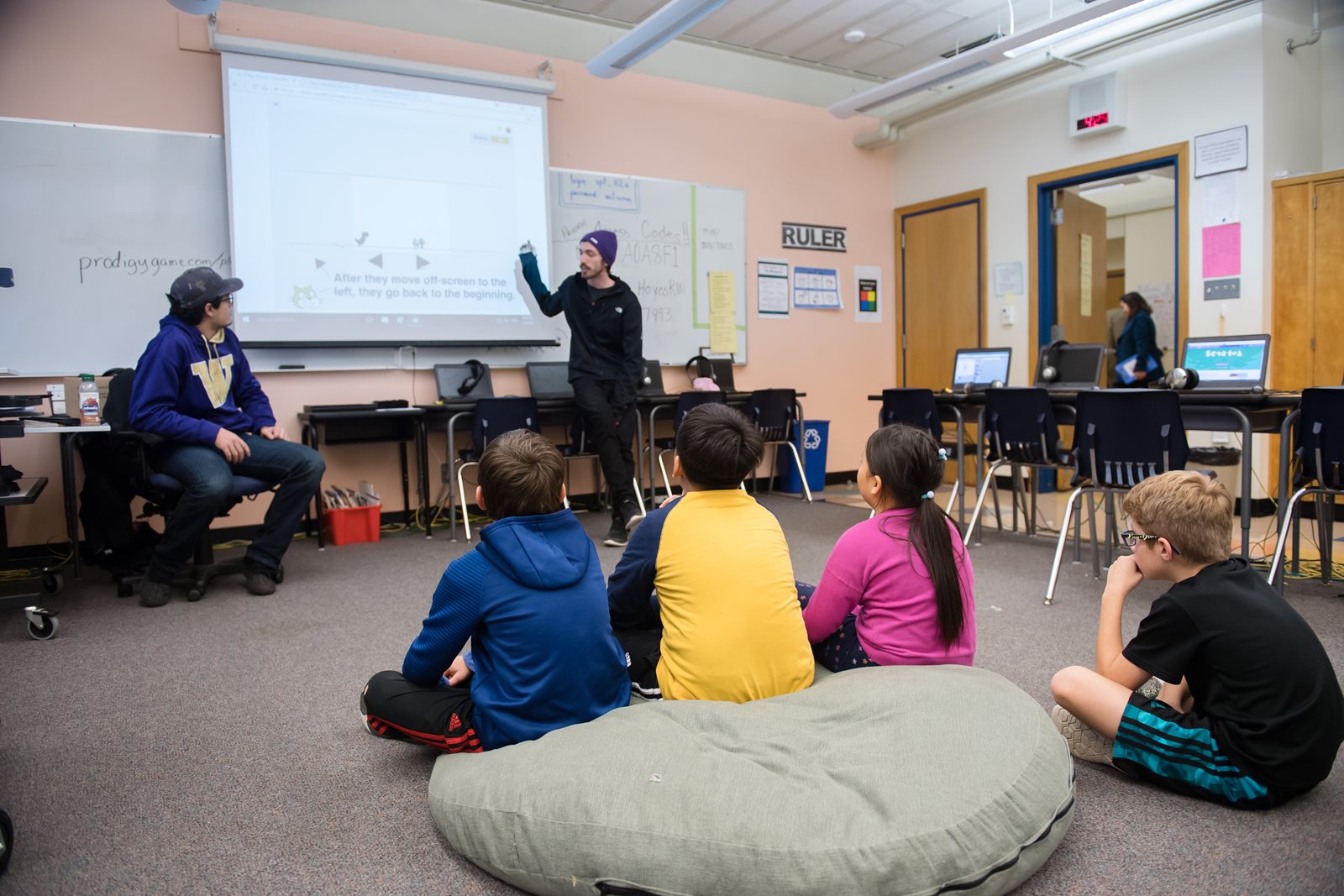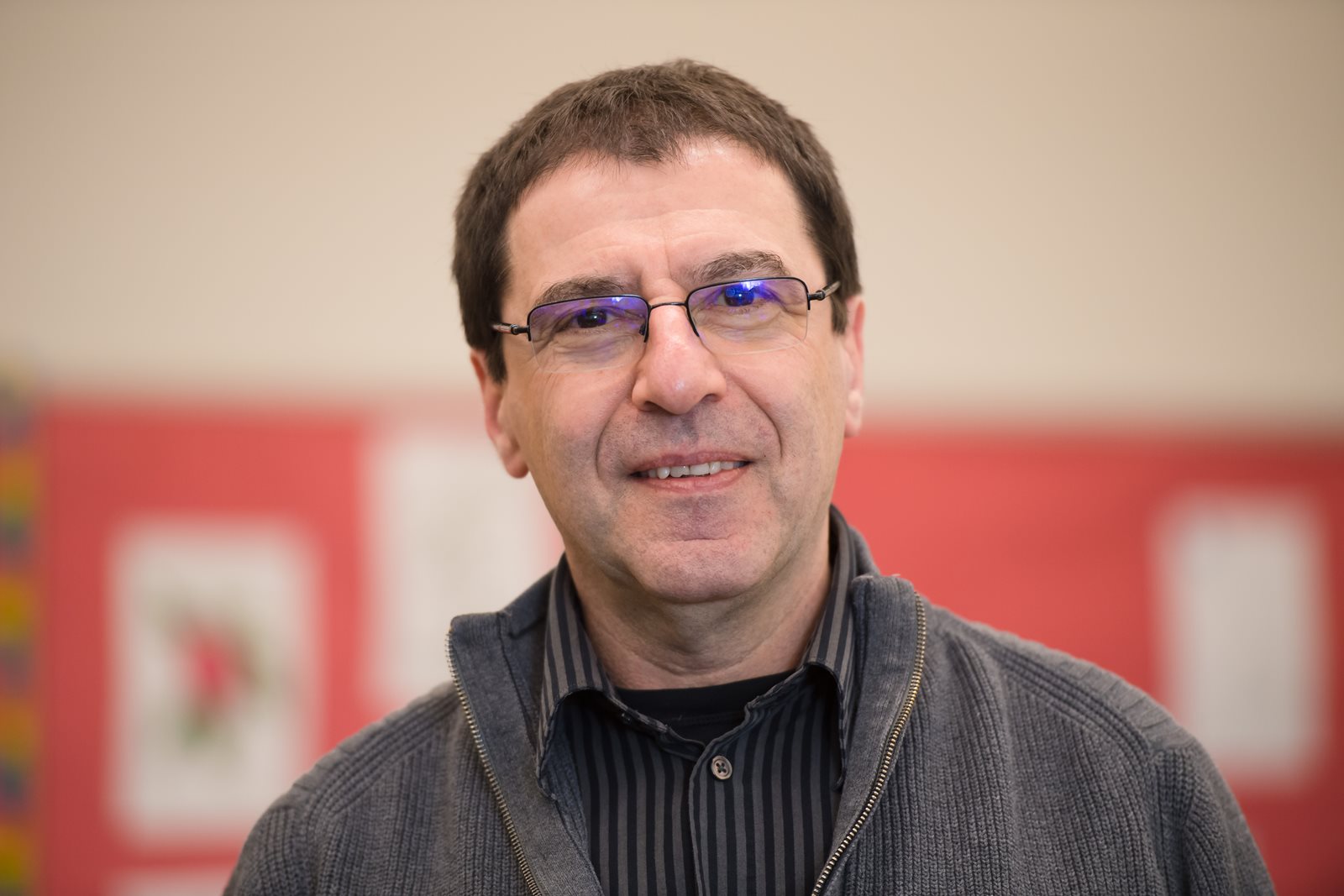
Haya Majeed, left, and Rachel Lee
By Douglas Esser
Marc Studer photos
The kids in an after-school program at Sand Point Elementary in Seattle aren’t playing computer games; they’re making them.
The YMCA program partners with the University of Washington Bothell to have computer science students teach programming to pupils who are fifth-graders or younger.
As the fall program was winding up on a December evening, Bothell students presented a segment of code for an animation scene (the background moves, not the character). Then, University students gave the elementary students one-on-one help until they got it.

After-school class at Sand Point Elementary
“Sometimes we have some pretty young students with pretty advanced coding knowledge,” said Randi Dodson, program supervisor for Kids University at Sand Point, through the University Family YMCA.
It’s a high-interest class where the young students have fun using a platform called Scratch. They learn how to lay out animation by stacking blocks of code.
“I’ve had positive feedback from parents. They seem to be really excited their kids are getting this level of attention and instruction and working one-on-one and sometimes two-on-one on coding knowledge,” Dodson said.

Arkady Retik
Dodson also reports a positive experience working with the UW Bothell Office of Community-Based Learning and Research and the computer science students in the course, K-12 Computing Education, taught each quarter by Arkady Retik.
Retik says the computer science students learn valuable skills in the process.
“Every job appreciates people who can train, who know how to communicate and present,” said Retik, lecturer in the computing and software systems division in the School of Science, Technology, Engineering & Mathematics. “We see this as mutually beneficial for our students and for the community. This is amazing how rewarding this is.”

Kevin Rogers, left, and Cash Hintz
The ability for programmers to express themselves to others can give them a leg up in the profession, said Kevin Rogers, who completed a computing and software systems degree with the two-credit course. He is already working as a software developer in Seattle.
“Just being able to explain your ideas and how things work in an easy-to-follow way is definitely important in this industry. You have to do code walk-throughs, and you have to explain how or why you did something in a certain way. This is an extra skill set, and if you don’t have it, it’s very obvious,” Rogers said.



